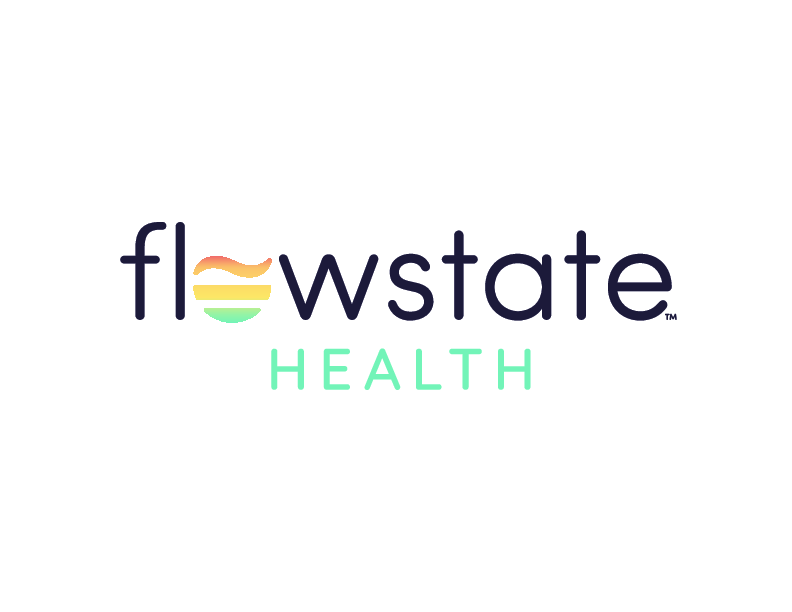2024 Phil Laughlin Award for Meritorious Service
At the awards ceremony during the Iowa Psychological Association (IPA) Spring Conference in Cedar Rapids on March 23, 2024, Dr. Benjamin Tallman was presented with the Phil Laughlin Meritorious Achievement Award. Many in attendance were moved in hearing both Dr. Tallman’s nomination and in his acceptance remarks. While his acceptance was offered extemporaneously at the ceremony, he was kind enough to reproduce his sentiments below.
First, IPA would like to publicly share Dr. Tallman’s nomination submitted by Alissa Doobay, Ph.D., Sam L. Graham, Ph.D., Sarah Fetter, Ph.D., Nicole Holmberg, Ph.D., Nicole H. Keedy, Ph.D., and Valerie J. Keffala, Ph.D., ABPP.
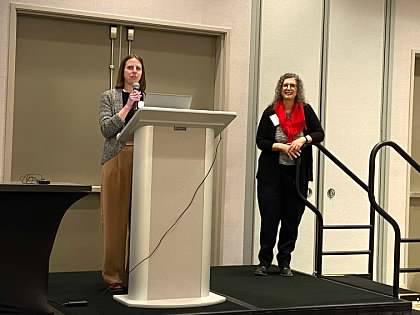
Dear Executive Council:
With great pleasure, we are honored to nominate Dr. Benge Tallman for the Phil Laughlin Meritorious Achievement Award. This award is “intended to honor an IPA member for outstanding service to the association.” Dr. Tallman is an incredibly fitting recipient for this award whose service to the association could not be fully captured within a reasonably concise nomination letter. It is our hope that this letter will at least partially communicate our wholehearted belief that he is more than amply deserving of this award. As his accomplishments have spanned multiple years and varied domains of service, this letter was written collaboratively to span his broad-reaching efforts for the association.
Dr. Tallman has been committed to IPA service from the start of his career and he has been active in IPA leadership since 2014. In fact, he was one of two members who were honored with the IPA Early Career Psychologist Award in 2019. His notable achievements for Iowa psychology highlighted in his nomination for the award by Dr. Doobay and Dr. Kauder included:
- Creating postdoctoral and undergraduate training opportunities at St. Luke’s Hospital to promote psychology in Iowa
- Creating new research and training opportunities for his students at Coe College
- Beginning his tenure in IPA early as a graduate student
- In his role as Treasurer, giving countless hours to IPA to assist in shifting from the imminent threat of financial instability to a financially thriving organization
- Shifting directly from Treasurer to President-Elect to continue leadership in the association
Leading the development of the current IPA Strategic Plan with ambitious efforts to gain perspective from psychologists who were IPA members and non-members as well as psychology professors and students
Since that time, Dr. Tallman’s leadership has continued to influence IPA profoundly. He has participated in search committees for important positions, including Training Director and Executive Director. He has served on many standing committees, including longstanding and continued participation in the Strategic Plan and Finance committees. He has contributed his time to multiple workgroups that involved tasks such as establishing IPA’s mentor program and investment policies, engaging in the tedious yet vital process of updating IPA’s Policies and Procedures (P&P) Manual, as well as support the marketing/re-branding project.
The following context is offered to assist in fully appreciating the dedication involved in his willingness to transition from Treasurer to President-Elect in 2019. In 2017, a President-Elect had resigned and IPA was facing both financial and relational challenges. The organization was in need of leadership to bring stability to the organization. With encouragement from Dr. Bethe Lonning to consider running for a second term in the Presidential role, Dr. Sam Graham spent a few weeks considering the proposal and ultimately agreed to step into the President Elect role with President at the time, Dr. Molly Nikolas. He assumed the President role shortly thereafter with Dr. Warren Phillips serving as President-Elect. As Dr. Graham considered potential members to recruit to follow Dr. Phillips, the Executive Director at that time, Carmella Schultes, suggested Benge and spoke of his growing role in IPA in the spring of 2018.
One of Dr. Graham’s biggest priorities upon returning to leadership was to return the Presidential Triad to a group that functioned as a team who were united in the commitment to work together. He appreciated that Dr. Phillips and Dr. Tallman were both in agreement and willing to volunteer the requisite time and energy to move the Triad in that direction. Dr. Tallman committed many hours to meeting and forming the Triad as a team. This dedication was particularly notable as he was a young man with an infant and a toddler at home and he was serving as an important leader for psychology in Cedar Rapids. He calmly discussed and suggested solutions to the problems in IPA and his insights were very helpful in restoring the Triad as a productive group.
Dr. Tallman’s impact on the association was amplified as he guided the revamping of the IPA Strategic Plan by implementing his novel vision for creating a “living document” that evolves with changing goals of the association and its committees. This Strategic Plan has assisted IPA in identifying unifying themes, aligning committee goals with IPA’s primary values, and increasing accountability of IPA leadership toward actualizing those goals. His leadership in the strategic planning process is likely to have a positive impact on IPA for many years to come.
Dr. Tallman gracefully stepped into a role that extended well beyond that of a typical IPA President as he led the association during the height of the COVID pandemic, a time of national fear and grief, as well as a time of professional anxiety and uncertainty when members were relying heavily on IPA to provide them with news and advocacy. Dr. Keffala, who served as President-Elect at the time, recalled speaking with Dr. Tallman after the APA leadership conference to figure out how to respond to growing fears of the novel coronavirus – a truly new experience for an IPA President to navigate – and ultimately cancelling what was expected to be IPA’s most highly attended conference. Dr. Tallman thoughtfully assisted in making the decision to prioritize safety and he subsequently provided guidance in establishing new parameters as the organization shifted to providing valuable connection and training content in a suddenly (nearly fully) online world.
Amidst various tensions in the world of psychology and beyond, Dr. Tallman also recognized the importance and value of supporting creation of the Diversity Liaison role for Executive Council during his tenure in the Presidential Triad. This role was added to EC, with his enthusiastic support, during his Presidential year.
Dr. Tallman has contributed to the strength and longevity of IPA leadership by recruiting talented early career psychologists to get involved in IPA. It is well known that Dr. Tallman thoughtfully supported and recruited multiple current IPA leaders to fill their committee and EC positions, including three authors of the current letter. He generously donated his time to talk to members considering running for President-Elect and provided consultation and mentorship with those who were elected during challenging times. For the past three years, many of us have heard the responded to a question asked in the EC Orientation meeting: “What inspired you to get involved in IPA leadership.” A repeated response, becoming essentially a source of humor at this point, has been some version of, “Benge persuaded me,” followed by gratitude for his encouragement and his ability to identify leadership potential.
Dr. Tallman has served as a visionary and a consistently enthusiastic mentor and leader in IPA. His leadership style has repeatedly served as an asset to IPA in advancing the organization’s growth. He is open to change, collaborates effectively with others to promote and facilitate change, and is encouraging and supportive of his teammates along the way. He is a great mentor, coach, and cheerleader, all in one. We have all appreciated the joy of serving the organization with Dr. Tallman a part of the team. He is clearly deserving of the recognition involved in receiving an award titled after a similarly influential IPA member, the Phil Laughlin Meritorious Achievement Award.
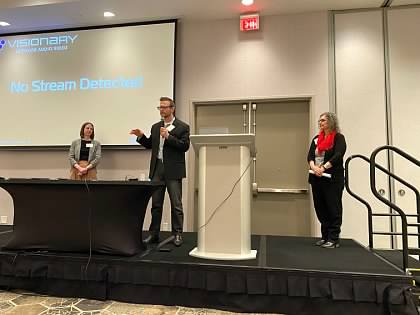
It is truly a wonderful honor to receive the Phil Laughlin Meritorious Achievement Award. Words cannot fully describe the gratitude and love that I feel toward the letter writers and my IPA colleagues. IPA has been my professional home for many years and it has been a privilege to serve alongside so many talented psychologists and humans. I have served in IPA leadership because of the love I have for my colleagues and for all Iowans. One of my core values is to serve others, especially individuals from disenfranchised or marginalized backgrounds. There continues to be a tremendous need for mental health services in Iowa and we need to continue pursuing new initiatives to advocate for the science and practice of psychology in our great state.
There are several areas that are critically important for the future of psychology to continue to evolve in Iowa. One such area is the IPA training program. We must continue to recruit, train, and retain psychologists to live and work in Iowa. We have had a great deal of success in creating a Post-Doctoral Fellowship Program and more recently the Cy-Hawk Region of the National Psychology Training Consortium (NPTC) to train pre-doctoral interns. It’s my belief that the future of Psychology in Iowa rests largely on IPA’s ability to grow and expand pre-doctoral internship and post-doctoral fellowship opportunities. The Cy-Hawk Region recently matched with several interns which is a huge milestone and a critical important step to achieve APA accreditation. Congratulations! To grow additional training initiatives, it will be important for IPA and IPF (Iowa Psychological Foundation) to collaborate to secure additional grants and funding streams to support future trainees and trainee sites. The future of psychology in Iowa starts with trainees and early career psychologists! If you have interest in creating training opportunities or being engaged in training initiatives for pre-doctoral interns or post-doctoral fellows, please reach out to Dr. Matt Cooper, IPA Training Director, or Dr. Warren Phillips, Cy-Hawk Region Training Director.
We can always do more in how we serve our communities and those we love and care about. Our time is valuable and we all live very busy lives. We all engage in avoidant/mindless activities (I like to watch Beach Front Bargain Hunt Renovation) and this is sometimes necessary to give our minds a break from our busy lives. With that said, there is always something that we can cut from our lives and add an activity that fills us up, is meaningful, and is consistent with our goals or values. I would encourage, or even challenge you, to consider serving on an IPA committee or assisting with an IPA initiative, even if it is only for a few hours per month. There is a core group of IPA members who wear multiple hats, and we are always looking for additional assistance from IPA members. Here is a link to information on IPA committees. I appreciate you all considering ways to serve!
I want to also acknowledge and express gratitude to my friend and colleague, Phil Laughlin. It such a honor to receive an award named after someone who you admire, respect, and love. In the past I have referred to Phil as one of the “Godfathers” of psychology in Iowa and this still holds true. I enjoy getting e-mails and talking with Phil about his children, grandchildren, and great-grandchildren. I also learned from Phil how to work the back of a room during a conference and gently (sometimes strongly) encourage someone to pursue a leadership position in IPA. Phil was always working behind the scenes trying to convince someone they had the skills and talents to step into a new and potentially uncomfortable position. Phil helped me believe in myself and when my own expectations got in the way of me believing that I could succeed in IPA leadership. I now try to support and encourage my fellow colleagues to take a similar path by serving IPA, and sometimes I must convince them that they have what it takes to do the job. Thank you Phil!
Again, I’m truly grateful to be honored by my colleagues and I’m flattered by the kind words of my letter writers. Thank you for all for your support and for being a strong presence in my life and for your continued dedication to IPA and to all Iowans. I want to thank God and Jesus Christ as all the glory of this award belongs to them. I also want to thank my parents, who both worked in helping professions, for their love, support, and instilling the importance of faith and service in my life. Last, I want to thank my wife, Gisele, who has been by my side through thick and thin. I certainly would not be receiving this award (or have received my psychology degree) without her love and unfailing support.
Again, thank you all and may God be with you!
Benge
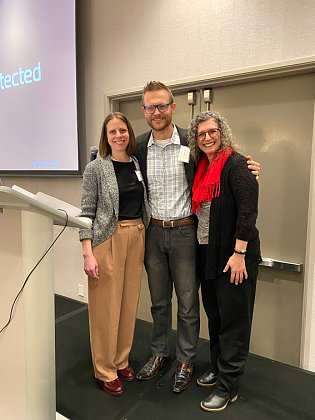
Begin paid content

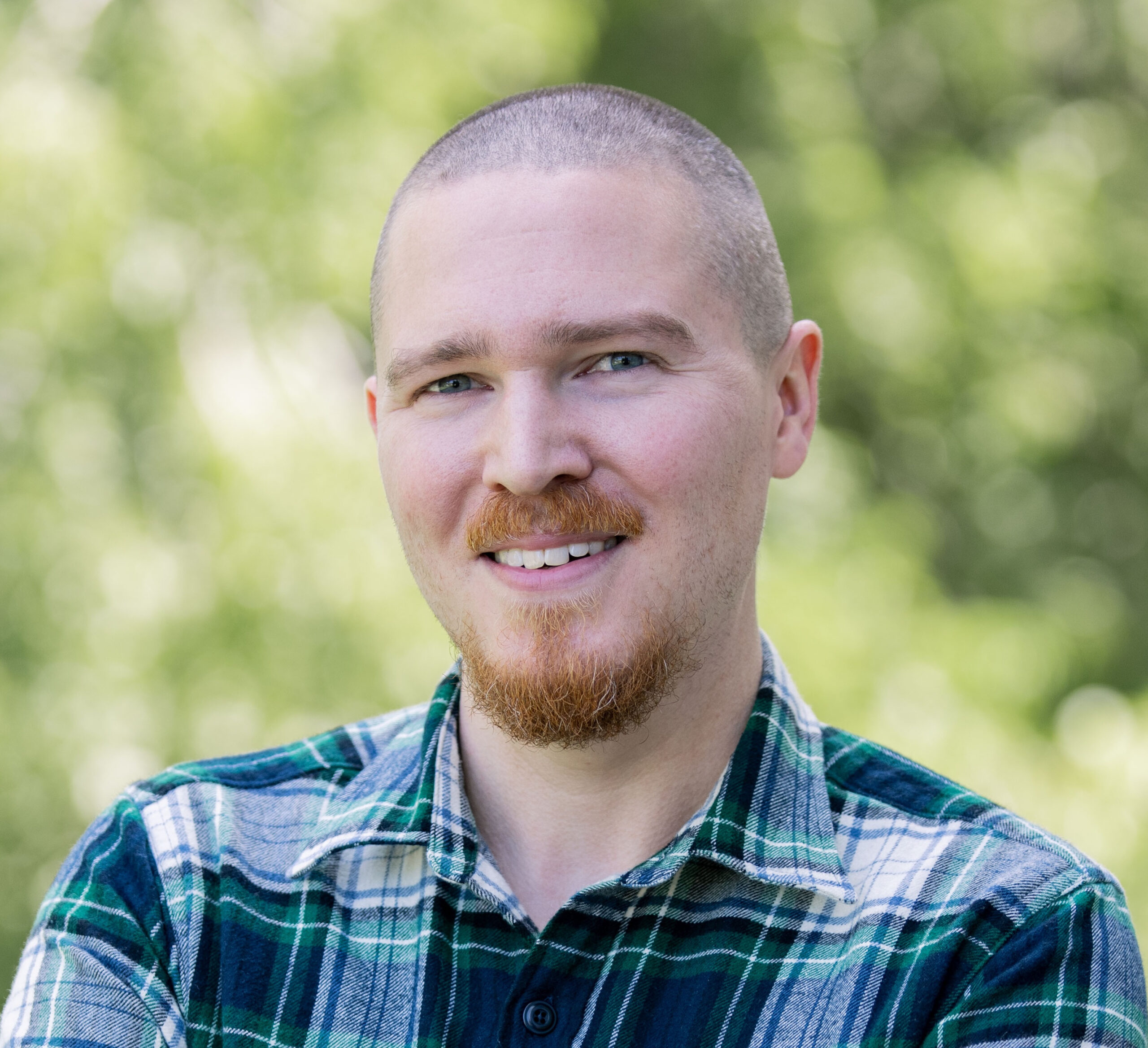

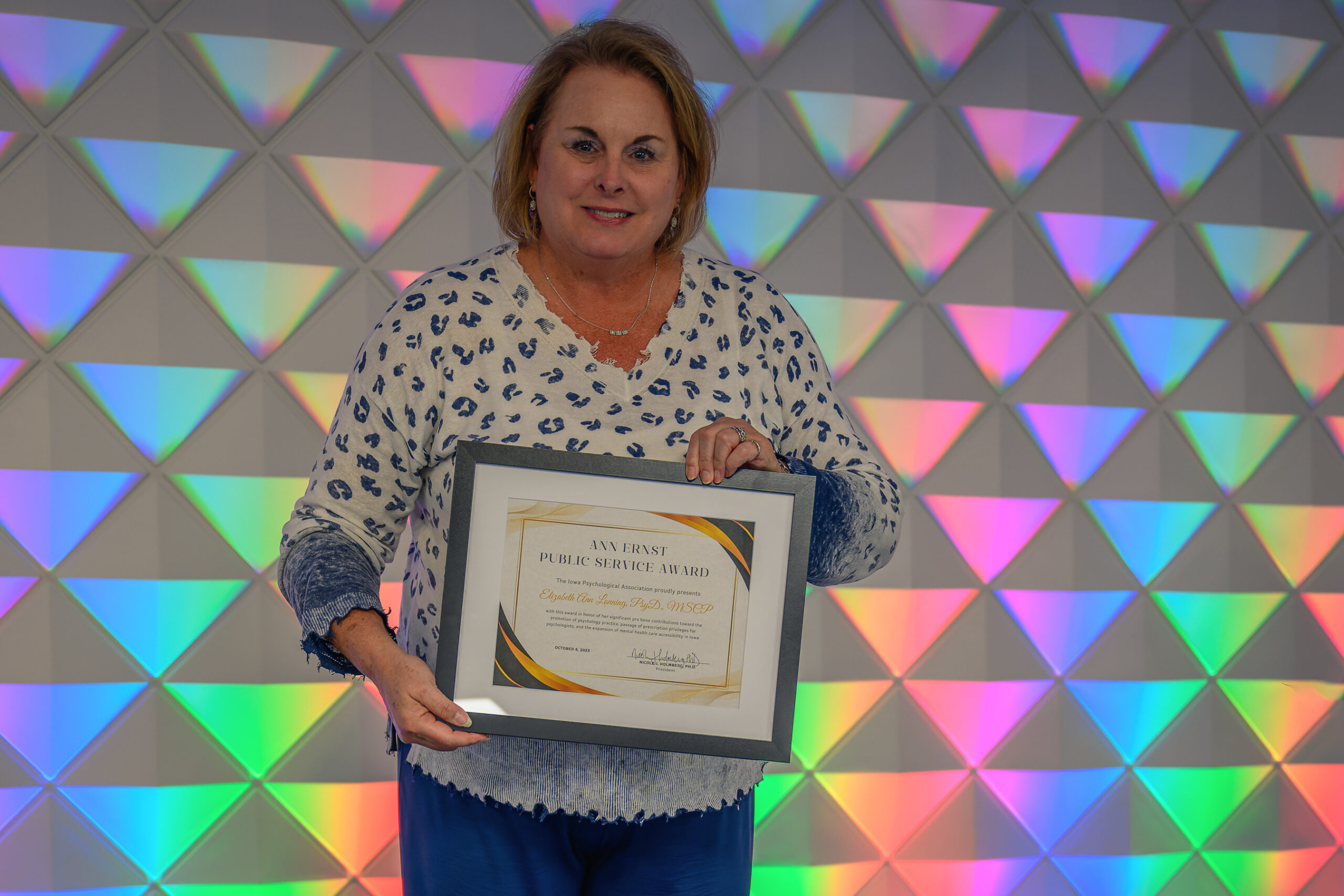
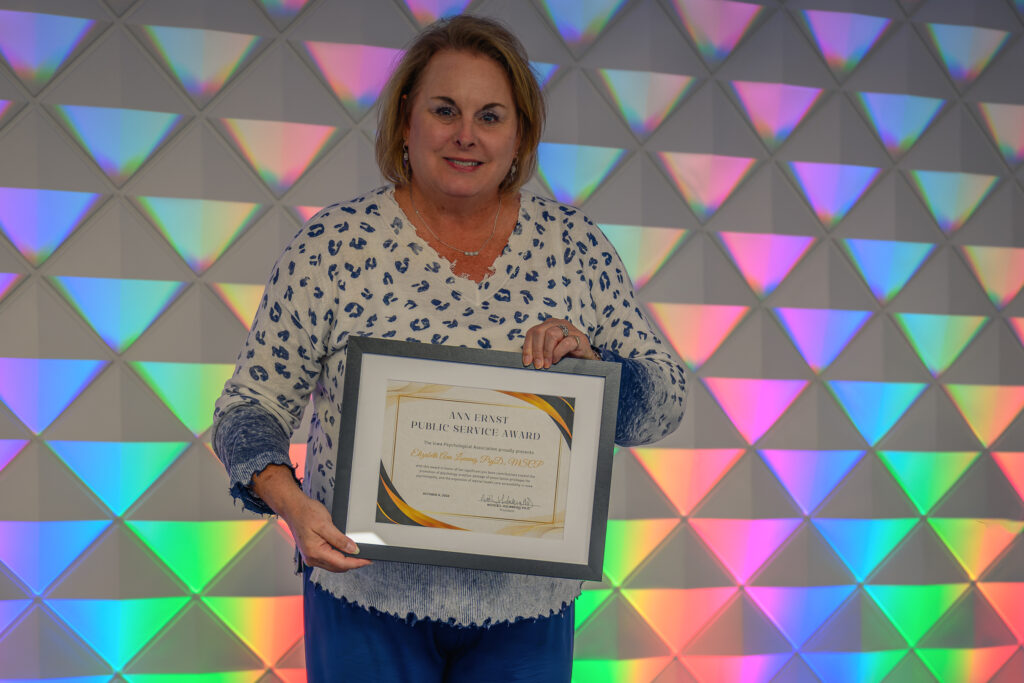
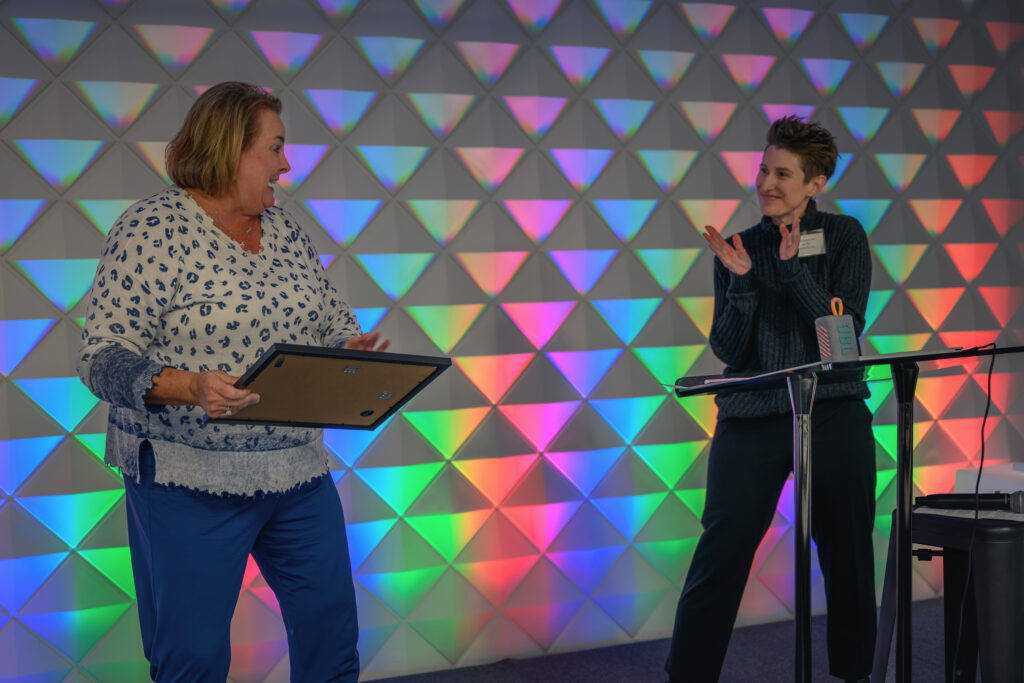
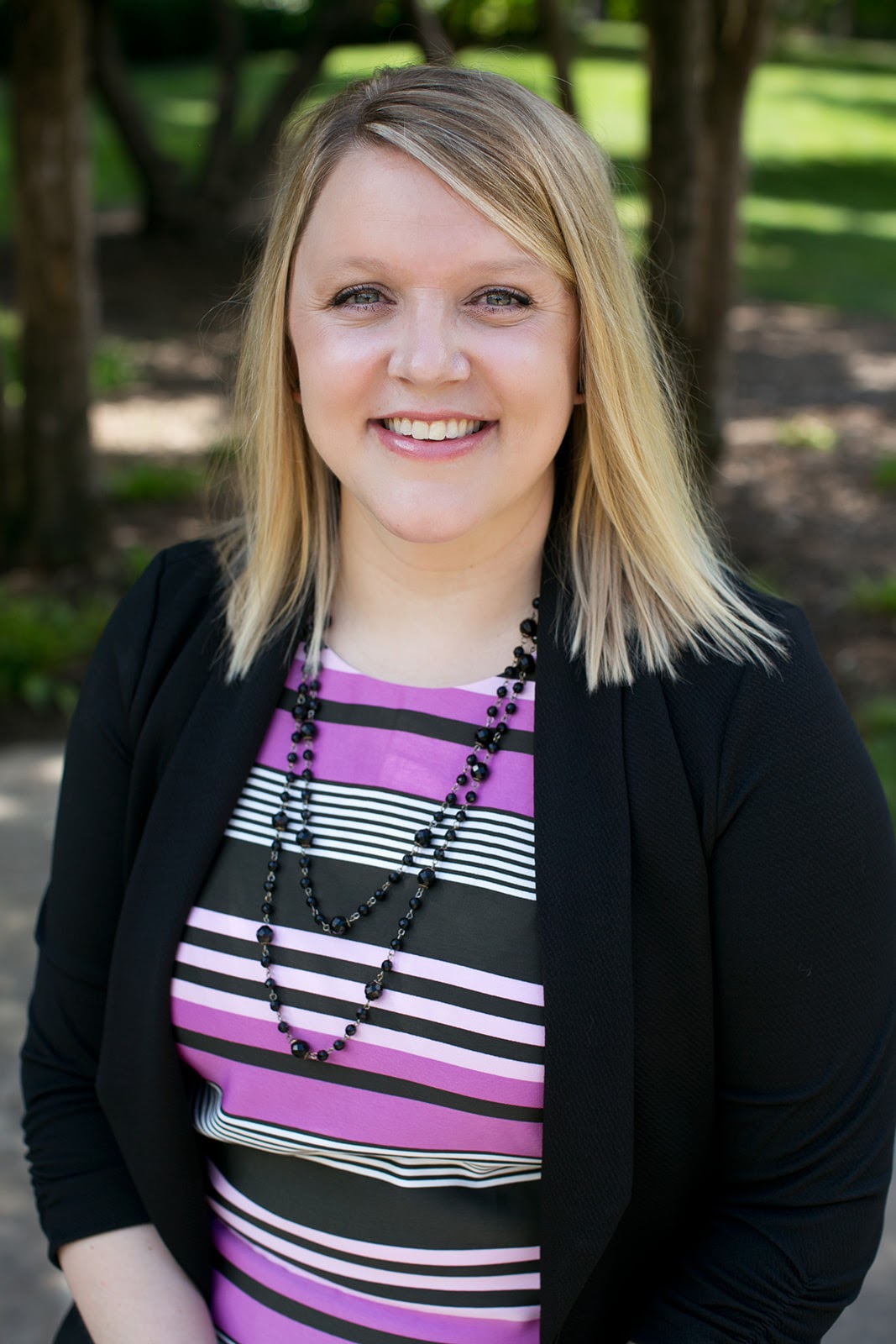
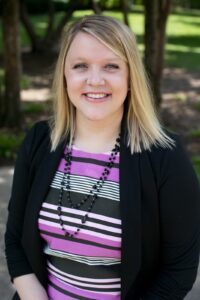
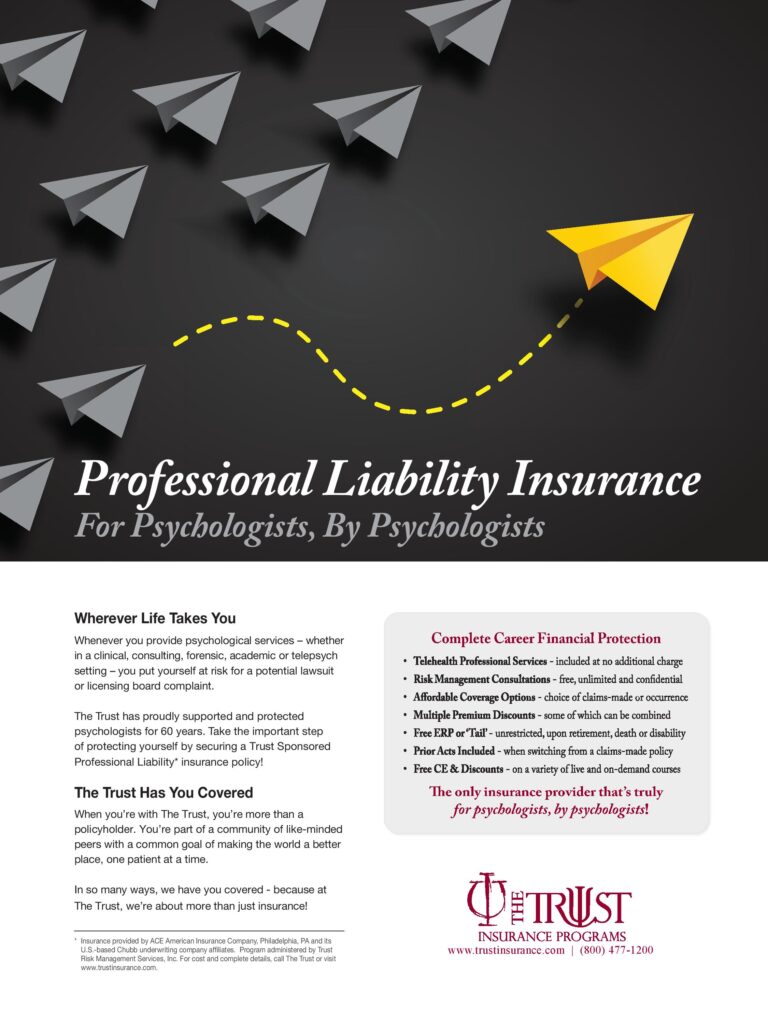
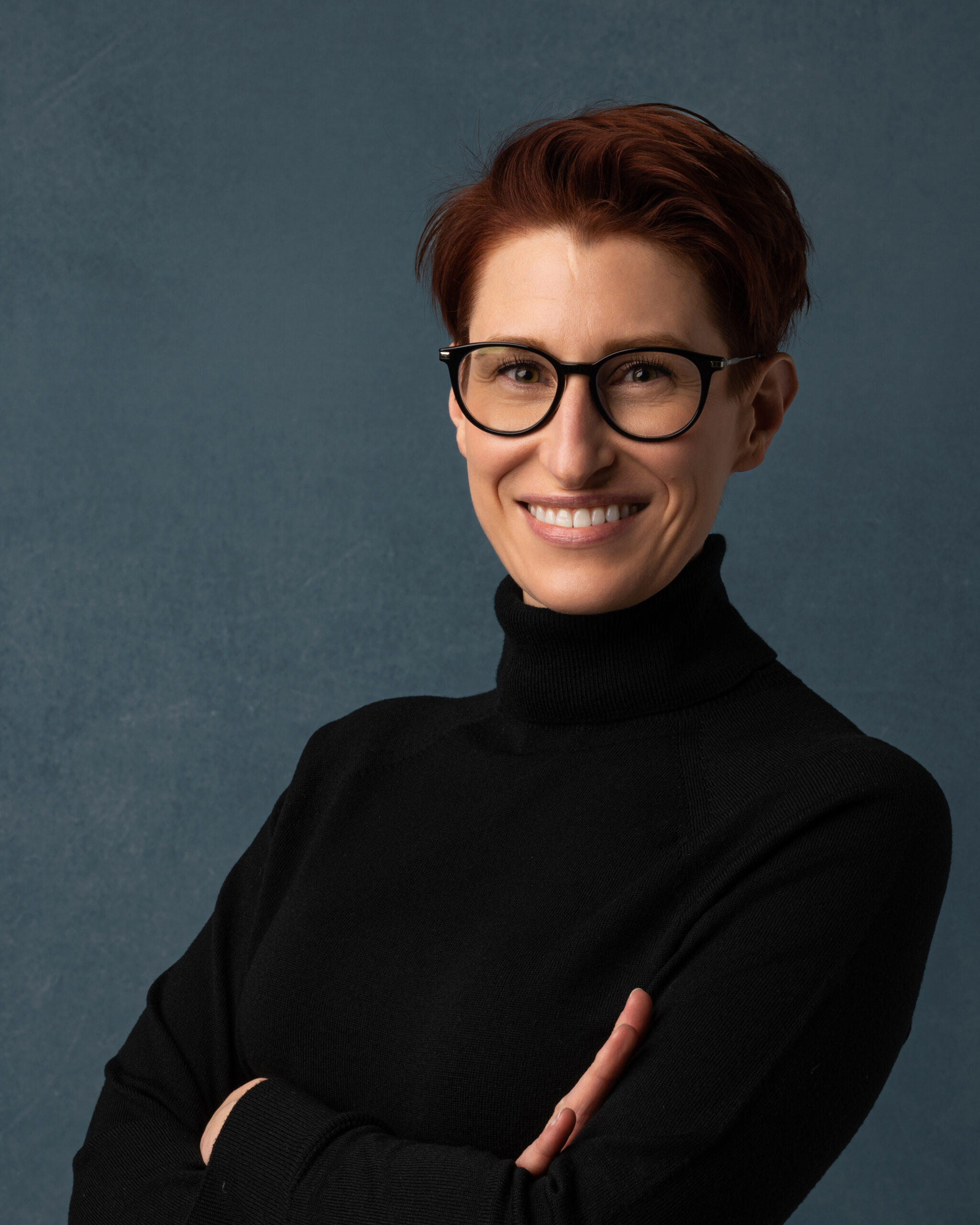
 IPA’s mission is to promote the science and practice of psychology for the benefit of all Iowans. Our volunteer leaders and paid contractors have been working hard in 2023 to carry out that mission in alignment with our
IPA’s mission is to promote the science and practice of psychology for the benefit of all Iowans. Our volunteer leaders and paid contractors have been working hard in 2023 to carry out that mission in alignment with our 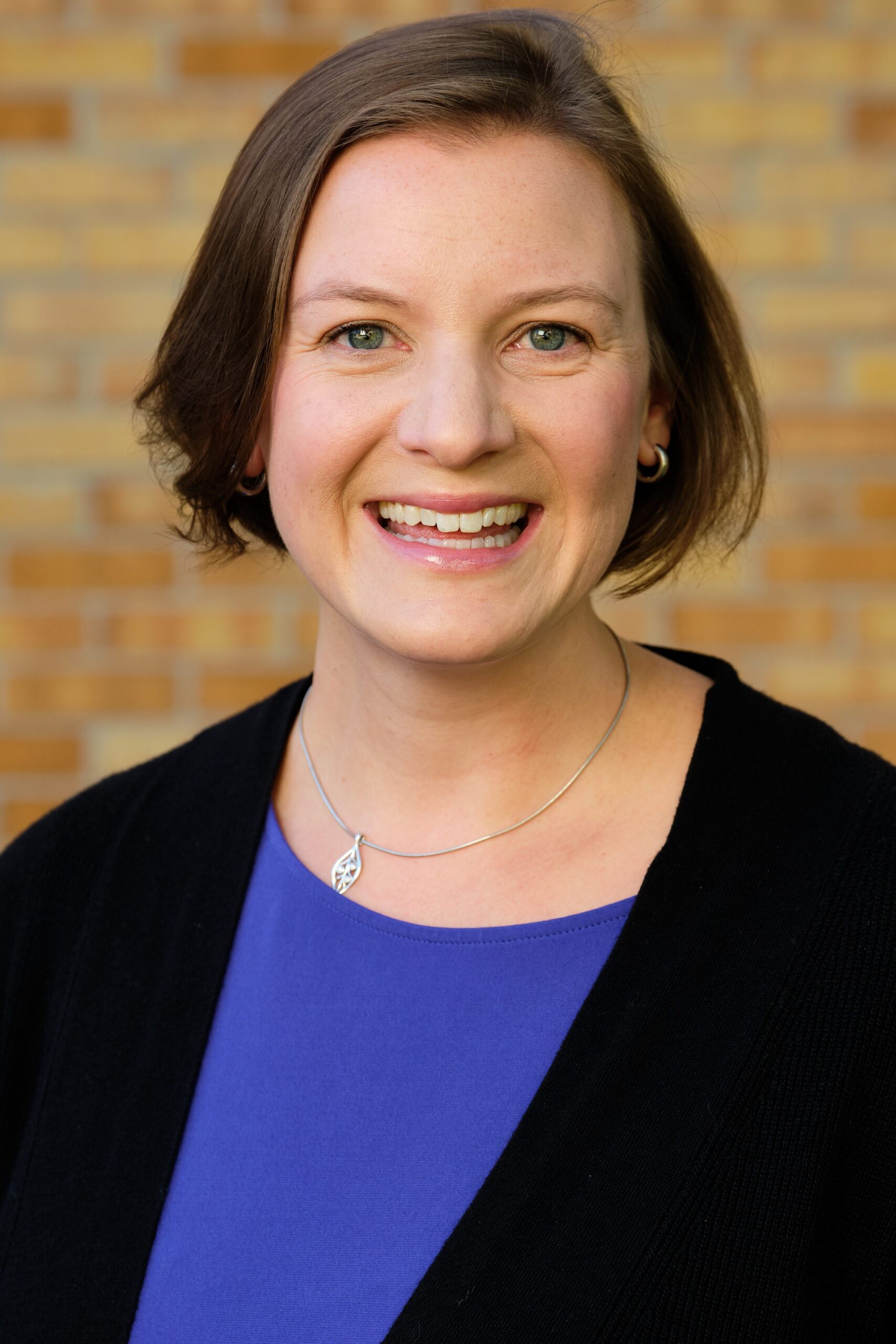
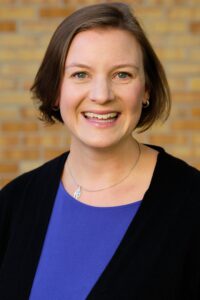 The Iowa Psychological Association Spring 2023 conference was unlike any other professional meeting I had ever attended! I knew it would be a unique day as I drove to the event from my home in Des Moines. Navigating across parts of Iowa I had never visited with vast farmland and small-towns drifting by, I was deep in thought about the future of our state. Not far from the venue, I turned too early and encountered a herd of cows in a field, with beautiful rolling hills and tiny gravel roads in the distance. I definitely wasn’t in Colorado anymore!
The Iowa Psychological Association Spring 2023 conference was unlike any other professional meeting I had ever attended! I knew it would be a unique day as I drove to the event from my home in Des Moines. Navigating across parts of Iowa I had never visited with vast farmland and small-towns drifting by, I was deep in thought about the future of our state. Not far from the venue, I turned too early and encountered a herd of cows in a field, with beautiful rolling hills and tiny gravel roads in the distance. I definitely wasn’t in Colorado anymore!
 The morning of IPA’s Spring conference likely had two “kick offs.” One was occurring being the scenes, where the conference planning committee headshot for Dr. Barazanjiwas creatively pivoting to respond to unforeseen challenges related to the resort’s amenities. My hat goes off to all those incredible individuals as they managed that kickoff with grace and innovation in order to deliver what was promised to attendees.
The morning of IPA’s Spring conference likely had two “kick offs.” One was occurring being the scenes, where the conference planning committee headshot for Dr. Barazanjiwas creatively pivoting to respond to unforeseen challenges related to the resort’s amenities. My hat goes off to all those incredible individuals as they managed that kickoff with grace and innovation in order to deliver what was promised to attendees.
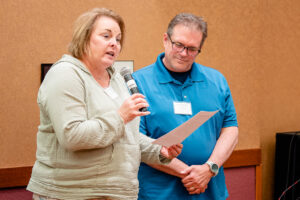 You know that a candidate is deserving of an award when two fellow psychologists both decide to nominate her at the same time. That was the case this year when both Dr. Bethe Lonning and Dr. Warren Phillips submitted nominations for Dr. Sally Oakes Edman. Their nomination letter:
You know that a candidate is deserving of an award when two fellow psychologists both decide to nominate her at the same time. That was the case this year when both Dr. Bethe Lonning and Dr. Warren Phillips submitted nominations for Dr. Sally Oakes Edman. Their nomination letter: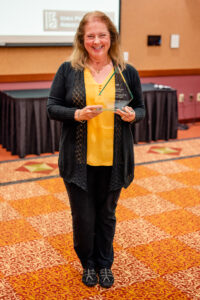 The summer after my junior year in college, I decided I should use my psychology major to become a clinical psychologist. I was 20 years old, and had never met a clinical psychologist.
The summer after my junior year in college, I decided I should use my psychology major to become a clinical psychologist. I was 20 years old, and had never met a clinical psychologist.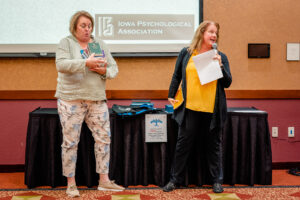 A year or two after I joined IPA, I attended a conference, since I really needed the continuing education, and as this was around the time we got our first EVER computers in our offices and were being trained on how to use a new thing called “email”, there was no remote CE option. Attending was tricky, though, because I was nursing my baby daughter, and couldn’t be away from her overnight. So I recruited my husband to come along and wrangle three little kids in a hotel room in Des Moines, and deliver my baby to me at the right times so I could nurse her. My plan was to do this while looking not like a young nursing mama, but like a mature, knowledgeable professional in this room full of older men. This was in the days of a very popular TV commercial – everyone watched the same four channels in those days – involving a sexy woman wearing a business suit and high heels singing to striptease-type music “I can bring home the bacon, fry it up in a pan, and never let him forget that he’s a man.” What a message – I can earn the money, do the housework, and still be the sexy little woman upholding my man’s masculine ego. Women were working like crazy to show that we could do it all. Ourselves. Without help.
A year or two after I joined IPA, I attended a conference, since I really needed the continuing education, and as this was around the time we got our first EVER computers in our offices and were being trained on how to use a new thing called “email”, there was no remote CE option. Attending was tricky, though, because I was nursing my baby daughter, and couldn’t be away from her overnight. So I recruited my husband to come along and wrangle three little kids in a hotel room in Des Moines, and deliver my baby to me at the right times so I could nurse her. My plan was to do this while looking not like a young nursing mama, but like a mature, knowledgeable professional in this room full of older men. This was in the days of a very popular TV commercial – everyone watched the same four channels in those days – involving a sexy woman wearing a business suit and high heels singing to striptease-type music “I can bring home the bacon, fry it up in a pan, and never let him forget that he’s a man.” What a message – I can earn the money, do the housework, and still be the sexy little woman upholding my man’s masculine ego. Women were working like crazy to show that we could do it all. Ourselves. Without help.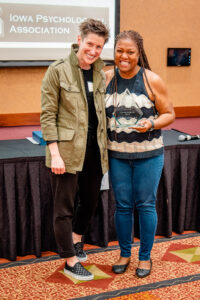 Upon joining IPA, Dr. Goins-Fernandez quickly got involved in leadership. She was instrumental in the development of our Diversity and Social Justice Committee (DJSC) in 2016. She chaired or co-chaired the committee until April of 2022. Under her leadership, the DJSC’s membership increased by more than 100%, and she welcomed many student IPA members to the committee. Dr. Goins-Fernandez’s leadership style is collaborative and empowering. In her role as DSJC chair, she regularly invited and encouraged contributions from committee members. By sharing her vision and setting clear expectations, she empowered others to do their part to promote EDI efforts within IPA. She successfully argued for a clause in all speaker contracts requiring presenters to discuss EDI aspects of their topics; this initiative was approved by our Executive Council. Dr. Goins-Fernandez was a key voice in creating and updating our Social Justice Policy that delineates procedures for how IPA addresses social justice issues and in adding a statement to our website that communicates the association’s commitment to EDI. Other than our Membership Committee, no other committee engages our members more frequently. The DSJC provides members with educational content, including formal continuing education training events and informal postings to our E-list. Dr. Goins-Fernandez has organized multiple presentations by experts in the field including Dr. Melba Vasquez (cultural competence and ethics), Dr. Sherry Wang (combating anti-Asian hate), Dr. Erin Alexander (racial reconciliation), and Dr. Erin Andrews (disability awareness and ethics). She and the DSJC created a Graduate Student Diversity and Social Justice Award to recognize IPA student members for community-based social justice projects. She also started the DSJ Book and Film Club, in which IPA members read books or watch films on EDI topics. Some of the books discussed have included “How to be an Anti-Racist” by Dr. Ibram X. Kendi, “Minor Feelings: An Asian American Reckoning” by Cathy Park Hong, and “Sissy: A Coming of Gender Story” by Jacob Tobia; film titles include “13th” and “Katrina Babies.”
Upon joining IPA, Dr. Goins-Fernandez quickly got involved in leadership. She was instrumental in the development of our Diversity and Social Justice Committee (DJSC) in 2016. She chaired or co-chaired the committee until April of 2022. Under her leadership, the DJSC’s membership increased by more than 100%, and she welcomed many student IPA members to the committee. Dr. Goins-Fernandez’s leadership style is collaborative and empowering. In her role as DSJC chair, she regularly invited and encouraged contributions from committee members. By sharing her vision and setting clear expectations, she empowered others to do their part to promote EDI efforts within IPA. She successfully argued for a clause in all speaker contracts requiring presenters to discuss EDI aspects of their topics; this initiative was approved by our Executive Council. Dr. Goins-Fernandez was a key voice in creating and updating our Social Justice Policy that delineates procedures for how IPA addresses social justice issues and in adding a statement to our website that communicates the association’s commitment to EDI. Other than our Membership Committee, no other committee engages our members more frequently. The DSJC provides members with educational content, including formal continuing education training events and informal postings to our E-list. Dr. Goins-Fernandez has organized multiple presentations by experts in the field including Dr. Melba Vasquez (cultural competence and ethics), Dr. Sherry Wang (combating anti-Asian hate), Dr. Erin Alexander (racial reconciliation), and Dr. Erin Andrews (disability awareness and ethics). She and the DSJC created a Graduate Student Diversity and Social Justice Award to recognize IPA student members for community-based social justice projects. She also started the DSJ Book and Film Club, in which IPA members read books or watch films on EDI topics. Some of the books discussed have included “How to be an Anti-Racist” by Dr. Ibram X. Kendi, “Minor Feelings: An Asian American Reckoning” by Cathy Park Hong, and “Sissy: A Coming of Gender Story” by Jacob Tobia; film titles include “13th” and “Katrina Babies.” 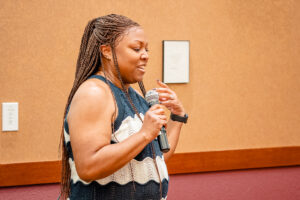 Dr. Goins-Fernandez has made a significant impact on IPA, and our organization is better and stronger for it. There is no doubt that she has helped Iowa psychologists provide more effective and safer care to Iowans who have experiences and identities that differ from their own by spearheading programming to expand their multicultural awareness, knowledge, and skills. It is for these reasons and more that I believe she is deserving of IPA’s Diversity Leadership award.
Dr. Goins-Fernandez has made a significant impact on IPA, and our organization is better and stronger for it. There is no doubt that she has helped Iowa psychologists provide more effective and safer care to Iowans who have experiences and identities that differ from their own by spearheading programming to expand their multicultural awareness, knowledge, and skills. It is for these reasons and more that I believe she is deserving of IPA’s Diversity Leadership award.

